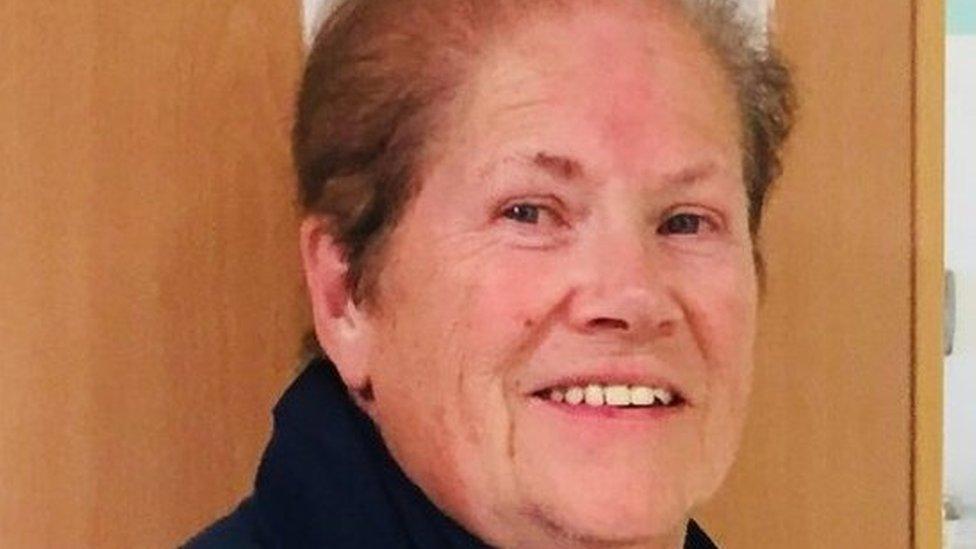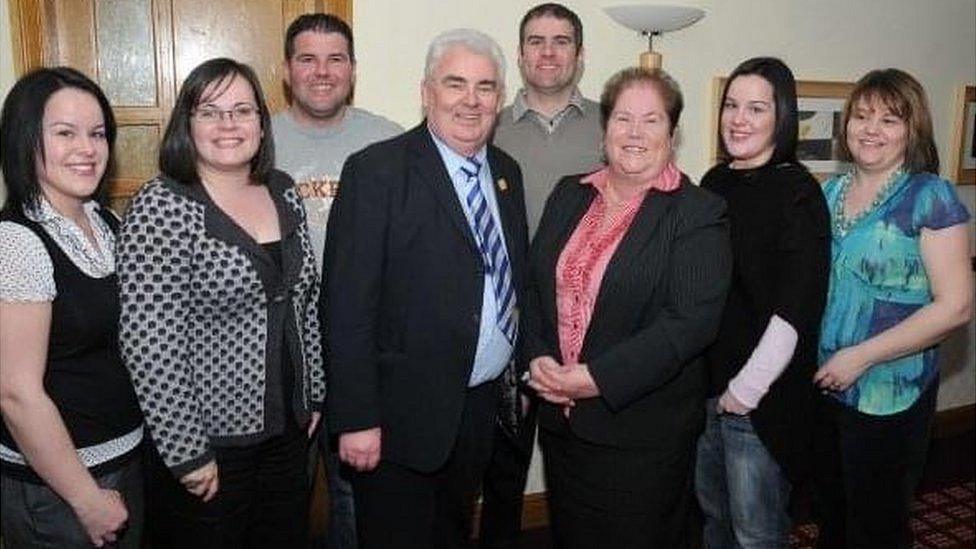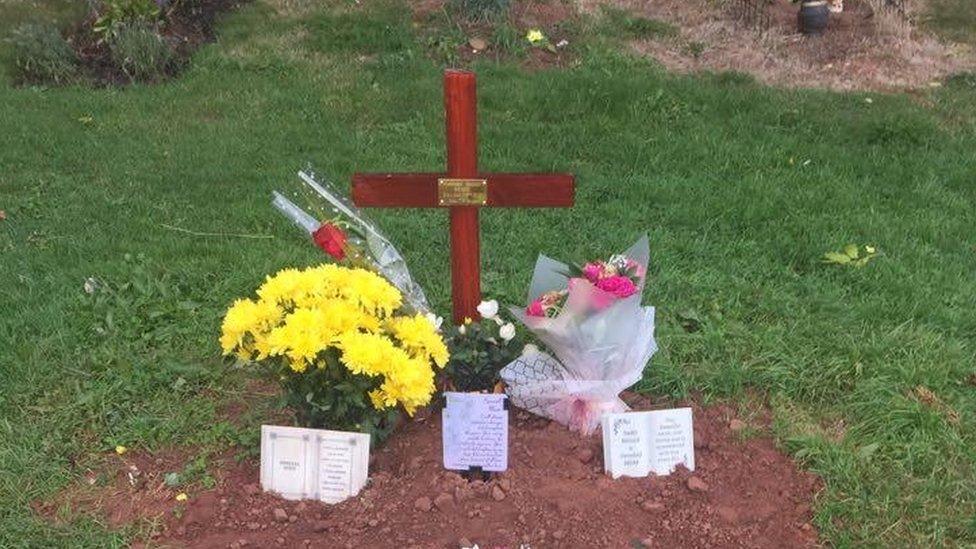Irish epitaph row 'does not reflect church policy'
- Published

Margaret Keane died suddenly aged 73 in July 2018
The Church of England says a ruling by one of its diocesan courts that an Irish epitaph must have an English translation "does not reflect" its national policy.
Caroline Newey's mother is buried in grounds owned by St Giles' Church, Exhall, near Coventry.
She wanted the headstone inscription to read: "In ár gcroíthe go deo" ("In our hearts forever").
But a judge ruled it may be seen "as a political statement".
Margaret Keane died suddenly two years ago, survived by her husband Bernie.
Both had been born in the Republic of Ireland, but made their lives in the United Kingdom.
The family said it had been battling for two years to have the gravestone of their choice at the Meadows in Ash Green in Coventry.
In his judgement for the consistory court of the Diocese of Coventry on 6 May, Judge Stephen Eyre QC, found there was "a sad risk that the phrase would be regarded as some form of slogan" and would be "unintelligible to all but a small minority of readers".
He authorised a memorial which included a translation of the phrase in English.
On Wednesday, the Church of England issued a statement to emphasise it was a judgement by the diocese's court and said it may "be appealed to the Provincial Court of the Archbishop".
The church said, in this instance, that would be the Arches Court of Canterbury.
Respect for Irish
The statement said the Irish language has played a central role in the advancement of Christianity in England.
"The Irish language is an important part of the heritage of the Church of England," it said.
"It was, after all, Irish speaking monks in Lindisfarne and beyond who played a central role in establishing the Church in what is now England."

Margaret Keane pictured with her husband Bernie and their children, Caroline (who made the petition to court), Bernadette, Vincent, Michael, Margaret and Donna
Proud of their heritage
Mrs Keane's family say both she and her husband were proud of their Irish heritage and had been active in the Gaelic Athletic Association (GAA) - Ireland's largest sporting organisation.
Alongside the Irish inscription on the gravestone, they wanted to include a Celtic Cross and a GAA emblem.
Initially, the parochial church council of St Giles supported the proposed memorial by a vote of six to five with seven abstentions, but noted that there were no comparable stones in the graveyard.
The Diocesan Advisory Committee did not recommend approval.
Caroline Newey accepted a compromise that the Celtic Cross could be inscribed on the stone, rather than being carved out of it.
However, there was no agreement on the Irish inscription.
Mrs Newey appealed to the Church's consistory court, arguing that adding an English translation would "overcomplicate and crowd" the memorial.
The judge noted her argument that the use of Irish was not intended as a political statement, but as "a vehicle of symbolic value".
He dismissed the petition, but authorised a memorial of the same shape, size and stone which included an English translation.

The family are upset they still have no final memorial for Margaret Keane
In his ruling, Judge Eyre said the memorial would be read by people who did not know the deceased and it was "unlikely to be appropriate" for them to read an inscription they found incomprehensible.
The situation would be "wholly different" if the memorial was in the Republic of Ireland, he said, but this was "English-speaking Coventry" and there was a risk of it being misunderstood.
Grieving 'suspended'
Bernadette Martin, another of Mrs Keane's six children, told BBC News NI the choice of headstone was a "final act of love" for their mother.
She said it was "devastating" that they "couldn't have a meaningful gravestone".
"It suspended the grieving process. We have no final memorial for her yet."
- Published3 June 2020
